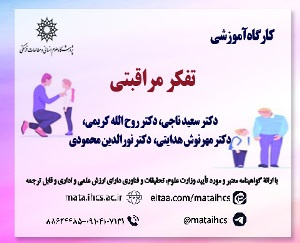تحلیل جرم شناختی جرم حکومتی بر مبنای نظریّه بازی (مقاله علمی وزارت علوم)
درجه علمی: نشریه علمی (وزارت علوم)
آرشیو
چکیده
تبیین پدیده ها و وقایع نوپدید در حوزه های مختلف با استفاده از نظریه ها و راهبردهای کلان و میان رشته ای، از جمله ابزارهای کاربردی برای فهم بهتر این پدیده ها به منظور اتخاذ رویکردهای مدیریتی – اجرایی مناسب در مقابل آن ها است. از اینرو فهم مفهوم «جرم حکومتی» به مثابه نقض نظام مند حقوق شهروندان توسط حکومت، ذیل «نظریّه بازی» به عنوان یکی از نظریّه های راهبردی برای تبیین پدیده ها و وقایع در عرصه های علوم اجتماعی و روابط بین المللی، موضوعی است که هم از منظر درک و ارتقاء ادبیات موسوم به جرم حکومتی، و هم از نظر توجه به جنبه عینی و عملی بایسته های شناسایی و پاسخ دهی به جرایم حکومتی، واجد توجه می باشد. از اینرو در نوشتار حاضر، با تلقی حکومت و شهروندان به مثابه دو کنشگر اصلی عرصه های مختلف، و با بهره گیری از اصول و ارکان نظریّه بازی، اینگونه استدلال شده است که کنشگران شرکت کننده در یک بازی دارای عقلانیّت بوده و با محاسبه سود و زیان احتمالی خود در فرآیند بازی شرکت کرده و در پی کسب حداکثر سود و حداقل زیان هستند. این کنشگران در نقطه ای موسوم به نقطه زینی - که در آن هر یک از کنشگران میزانی از سود و زیان را به دست آورده اند - به تعادل می رسند؛ این نقطه، نقطه ای است که دیگر امکان دریافت سود بیشتر و زیان کمتر برای هیچ کدام از طرفین وجود ندارد و در صورت ادامه بازی دچار کاهش سود و افزایش ضرر خواهند شد. در نهایت نیز این گونه نتیجه گیری شده است که حکومت ها با ابزارهایی نظیر وارد ساختن کنشگران دیگر به عرصه بازی خود با شهروندان، استفاده از رانت ها و ابزارهای اطلاعاتی، تغییر دادن قواعد و مقررات حاکم بر بازی، باعث بر هم خوردن تعادل و جابه جایی نقطه زینی به سوی خود شده و بدین سان موجبات نقض نظام مند حقوق شهروندان را فراهم می آورند.Criminological Analysis of State Crime Based on Game Theory
Explaining new phenomena and events in various fields using macro and interdisciplinary theories and strategies is on of the practical tools for better understanding of these phenomena in order to adopt appropriate management-executive approaches to them. Therefore, understanding the concept of "Sovernment Crime" as a systematic violation of citizens' rights by the government, under "Game Theory" as one of the strategic theories to explain phenomena and events in the fields of social sciences and international relations, is a matter that is both from the perspective of understanding and promotion. The so-called government crime literature is worthy of attention in terms of attention to the objective and practical aspects of identifying and responding to government crimes. Therefore, in this article, considering the state and citizens as two main actors in different fields, and using the principles and elements of game theory, it has been argued that the actors participating in a game have rationality and by calculating their possible profit and loss participate in the game process and seek maximum profit and minimum loss. These actors reach equilibrium at a point known as the saddle point - in which each actor has gained a certain amount of profit and loss. This point is the point where it is no longer possible to receive more profit and less loss for any of the parties, and if the game continues, they will suffer a decrease in profit and an increase in loss. Finally, it has been concluded that the states, with tools such as bringing other actors into their playing field with citizens, using rents and information tools, changing the rules and regulations governing the game, cause the balance to be disturbed and the saddle point to be shifted to turned towards themselves and thus cause systematic violation of citizens' rights.







